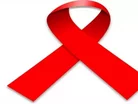FDA approves new AIDS drug

WRITTEN BY: Stanley Jackson
The struggle towards a ‘cure for AIDS’ has, for a long time, been considered one of the Holy Grails of medical advancement. Although a definitive cure remains a long way off, a breakthrough, being billed as one of the biggest scientific advancements in the study of AIDS for thirty years, took place this July.
Emtricitabine/tenofovir disoproxil fumarate (or Truvada for those of us who prefer to speak in fewer than forty syllables) has been tested under strenuous conditions by the FDA, and has turned up some impressive results.
The trial, conducted on 4,758 heterosexual couples where one partner was HIV-infected and the other was not, showed that Truvada reduced the risk of becoming infected by 75 percent compared with those who took a placebo.
The FDA is a notoriously hard agency to gain accreditation from; with the cost and time required to get from initial clinical trials to simply submitting a drug for FDA approval averaging $125 million and between 6-11 years.
"Today’s approval marks an important milestone in our fight against HIV," said FDA Commissioner Margaret A. Hamburg, M.D. "Every year, about 50,000 US adults and adolescents are diagnosed with HIV infection, despite the availability of prevention methods and strategies to educate, test, and care for people living with the disease. New treatments as well as prevention methods are needed to fight the HIV epidemic in this country."
What will prove beneficial for the United States, however, may reveal a chronic issue with world healthcare. Countries like Botswana and South Africa, each with AIDS rates of 20 percent or more amongst 16 -49 year olds, will not be able to distribute the drug to those who most need it, due to its high cost.
Unfortunately, the supply of Truvada is limited, meaning that celebrations regarding the drugs’ potential effectiveness will be marred by concerns of how to best allocate those resources.
“When I get to the question of who pays for this, I am completely dumbfounded”, said Kevin Frost, chief executive of The Foundation of Aids Research.
It must be an ethical concern for all involved that many countries, particularly those in Africa, do not have the capacity to treat those already infected, let alone prevent against the disease in pill form.
The risk is that the new drug will not reach those which so desperately needs it, but instead will simply reduce the amount of AIDS sufferers in countries with already low rates of infection. The dream of a ‘cure’ for AIDS may not reside within the scientific or medical discoveries themselves, but in the development of a plan for widespread transference of healthcare in a true global sense.
